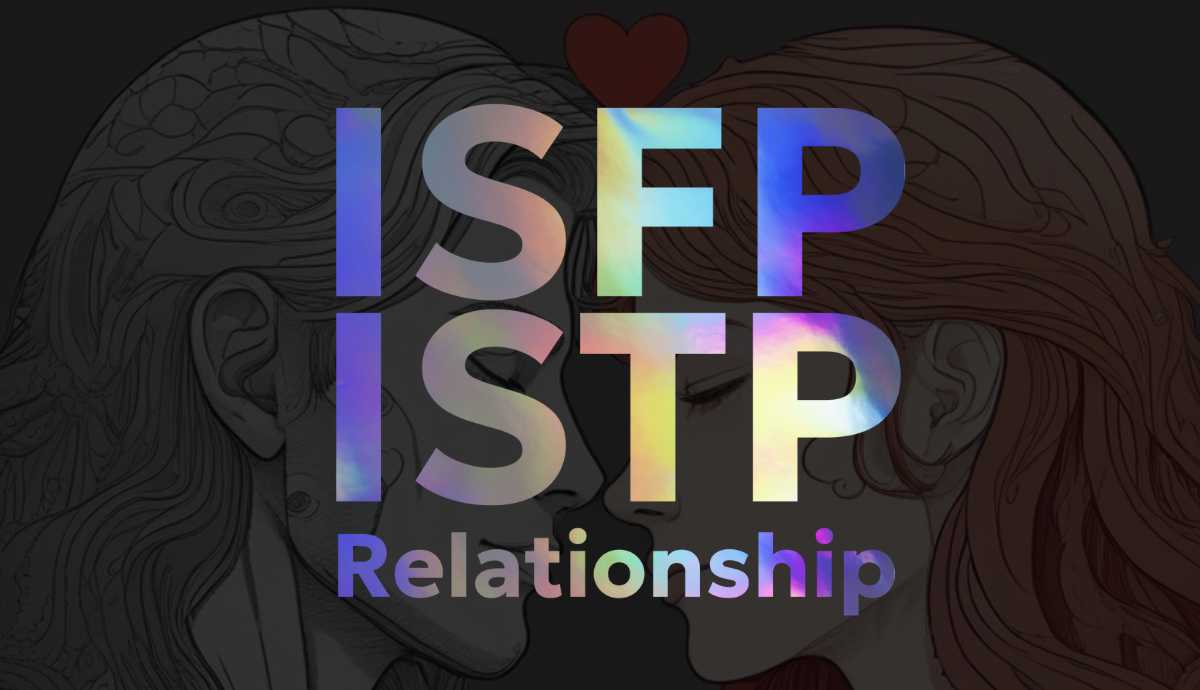Warm, altruistic, magnetic, persuasive and talkative, the ENFJ personality is an extrovert who oozes charisma and social savvy from their pores. With an estimated population of around 2 to 3%, the ENFJ is also one of the rarer mbti types. Despite their relatively small numbers however, they have the capacity to influence and impact the world in a big way.
They are idealists with a love of people and a desire to provide help, support and enlightenment. This personality type enjoys social novelty and to engage with others in creative and unusual ways. They are mystical and perceptive readers of people, able to understand them using their empathy and broad perspective.
On the other hand, ENFJs can also be Machiavellian, sometimes tempted to use their natural insights about human behavior for self-serving purposes. For the most part however, they see it as their role to help others live more authentically, ethically and guide them in their personal growth. For them, being an important and valued member of a group is very meaningful.
People of this MBTI type are not lone wolves. They seek to be a part of something bigger than themselves and to feel connected to a larger consciousness. Their sense of identity is strongly tied to the communities and social roles they inhabit. They derive gratification and fulfillment from maintaining an active and relevant place in the social realm.
As an Fe dominant type, the ENFJ places a lot of importance on building, developing and fostering positive relations with others. Be it their friends, family, romantic partners, or coworkers, ENFJs aim to get along with everyone. They enjoy conversing and connecting with all sorts of people and can seem chameleon-like in their ability to adapt and relate with others.
Moreover, these individuals are adept at understanding other people’s needs and motivations. With their imagination and vision, they are able to help others elevate their perspective, empower them and restore their faith in themselves. These personalities can make for very inspirational leaders.
Their positive energy is very attractive to others and allows them to attain a loyal and devoted following. People appreciate the heart and humanity that ENFJ shows. These individuals can often become the moral center and spiritual leader others look to for counsel and encouragement.
Unfortunately, because they are such smooth and persuasive communicators, they can at times get accused of being insincere or superficial. Criticism in general can be especially difficult for them to take. They can sometimes slip into depression and self-doubt in response to ridicule and attacks on their character.
ENFJs are “people persons” and people-pleasers and in their youth, they are especially eager to receive praise and approval from others. Many are prone to hero-worship and imitating people they admire and idolize. As children, those of this type are often the teacher’s pets and the obsequious siblings who seem as though they are always campaigning to be mom and dad’s favorite.
They enjoy family events, but they especially enjoy playing an active role in their orchestration. This type typically sees it as their responsibility and duty to oversee the planning and preparation of social events to make them fun, entertaining and enriching for all.
One of the highlights of the ENFJ personality type, is their powers of communication. Particularly that of verbal communication, where the full range of their self expression and charisma are on display. They become aware early on in their life, of their powers to influence and persuade others to get what they want.
Politicking comes naturally to them, as they know how to craft their words very carefully in order to strike the right chord and elicit the response they’re looking for. ENFJs, perhaps more than any other type, are compelled to be amongst people. In solitude, this type can quickly grow restless, pensive, depressed and moody. For them, even bad company is often more preferable than being alone or ignored.
They can be quite effective at using their insights to diagnose problems and find solutions that address the fundamental needs of everyone involved. As a rule, they to avoid conflict whenever possible, but when it occurs, they seek to resolve it in the most diplomatic way they can.
Because of their desire to see more love and harmony in the world, ENFJs can be forceful and outspoken advocates for what they believe is morally right and in the best interest of others. In their youth, they can be especially zealous and perhaps naive about their mission in life and their ability to fix the problems they see in the world.
With age and maturity, those with this personality type will likely come to understand the bounds of what can realistically be accomplished and eventually relinquish some of their ego-driven messiah complex. Nevertheless, the ENFJ person genuinely wants to play a part in helping people succeed, which is why many are attracted to professions in teaching, therapy and consulting.
Whatever guidance or service they provide to others, ENFJs can become so invested in their recipient’s success that any failure or dissatisfaction on their part can feel like a failure on theirs. They have perfectionistic tendencies that urges them to attain self-mastery and become an excellent example of the ideals they espouse and stand for. Overall, this is a type who seeks to constantly improve themselves and others but because of their inferior introverted thinking, they have an easier time tending to the problems around them than within them.
Want to know your astrology placements? You can generate your astrology chart here with our free birth chart generator tool.
ENFJ Strengths:
- Charismatic Leaders: ENFJs are often charismatic and inspiring leaders, capable of motivating and guiding others.
- Empathetic and Compassionate: They have a strong sense of empathy, understanding the emotions and needs of those around them.
- Excellent Communicators: ENFJs are articulate and expressive, able to convey their thoughts and emotions effectively.
- Strategic Thinkers: They possess a strategic mindset, able to see the big picture and plan for the future.
- Altruistic: ENFJs are driven by a desire to help others and make a positive impact on the world.
- Visionaries: They often have a clear vision for the future and work towards creating positive change.
- Diplomatic and Cooperative: ENFJs are skilled at building consensus and fostering cooperation among diverse groups.
- Optimistic: They maintain a positive outlook, inspiring hope and optimism in those around them.
- Adaptable: ENFJs can adapt well to changing circumstances, finding creative solutions to challenges.
- Team Players: They thrive in collaborative environments and value the input of others in achieving common goals.
ENFJ Weaknesses:
- Overcommitment: ENFJs may take on too much responsibility, leading to stress and burnout.
- Difficulty Saying No: They may struggle to set boundaries and say no to others, putting their needs aside.
- Conflict Avoidance: ENFJs may avoid confrontations to maintain harmony, sometimes at the expense of addressing important issues.
- Idealism: They may hold onto idealistic visions, leading to disappointment when reality falls short.
- Overemphasis on Others: ENFJs may prioritize the needs of others over their own, neglecting self-care.
- Sensitivity to Criticism: They can be sensitive to criticism, taking it personally and dwelling on negative feedback.
- Difficulty with Decision-Making: ENFJs may find it challenging to make tough decisions that could potentially upset others.
- Emotional Intensity: Intense emotions may be overwhelming for ENFJs, affecting their ability to cope in stressful situations.
- Burnout: Their dedication to helping others may lead to burnout if they neglect their own well-being.
- Struggle with Disapproval: ENFJs may be deeply affected by disapproval or conflict, seeking to restore harmony.
Famous ENFJ People:
- Martin Luther King Jr. – Civil Rights Leader
- Oprah Winfrey – Media Mogul and Philanthropist
- Nelson Mandela – Anti-Apartheid Revolutionary and Former President of South Africa
- Desmond Tutu – Archbishop and Nobel Peace Prize Winner
- Emma Stone – Actress
- Ben Affleck – Actor and Filmmaker
- Meryl Streep – Actress
- Maya Angelou – Poet and Author
- John Cusack – Actor and Producer
- Anne Hathaway – Actress
Other MBTI Types:
- INTP Personality Type
- INTJ Personality Type
- ENTP Personality Type
- ENTJ Personality Type
- INFP Personality Type
- INFJ Personality Type
- ENFP Personality Type
- ENFJ Personality Type
- ISTJ Personality Type
- ISFJ Personality Type
- ESTJ Personality Type
- ESFJ Personality Type
- ISFP Personality Type
- ISTP Personality Type
- ESTP Personality Type
- ESFP Personality Type
related posts:
- ENFJ Weaknesses; 7 Struggles of Being an ENFJ
- 6 Best Paying Careers for ENFJ
- 12 SHADES OF ENFJ | MBTI & THE ZODIAC
- ENFJ Shadow: The Dark Side of ENFJ
- ESTP and ESFP in love: 6 Dynamics of Their Relationship - September 4, 2024
- ISFP and ISTP in love: 5 Dynamics of their Relationship. - August 28, 2024
- ISFJ and ISTJ in love: 5 Essential Dynamics of their Relationship - February 24, 2024





